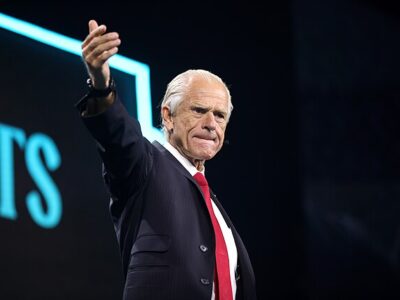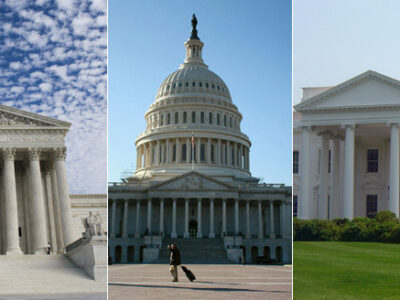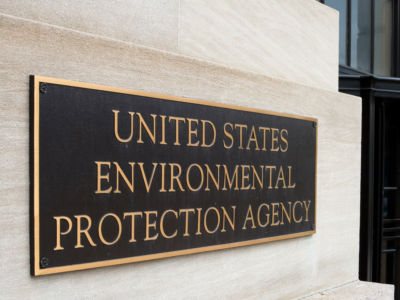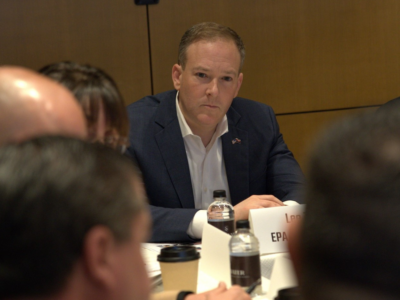Politics
What Should You Do For Earth Day? Get On The Phones
The Environmental Voter Project is pushing hard in Michigan and Texas.
Politics matters. A lot. This assertion might strike as the epitome of obviousness, but when it comes to Earth Day, there is a tendency to get away from the hard work of blocking and tackling and more toward thinking about Our Relationship With The Earth on a conceptual level. At this point, I’m sick of …
Continue reading “What Should You Do For Earth Day? Get On The Phones”
CONTINUE READINGThe NIMBY Presidency
Peter Navarro hates foreign trade. He also hates housing.
Well what a surprise. Not: Before Peter Navarro designed trade wars for President Trump, he orchestrated housing wars in San Diego across five unsuccessful bids for local office. Navarro, then a UC Irvine economics professor, led San Diego’s slow-growth movement in the 1990s, drawing battle lines that still define today’s development fights. His zero-sum view on homebuilding then …
Continue reading “The NIMBY Presidency”
CONTINUE READINGIs Trump Good for the Oil Industry?
Not particularly, it would appear. If there’s an effect, it’s not big enough to hit the eyes.
No doubt, the industry would rather have Trump in office than Harris. But the effect on industry profits may only be incremental. It would be great to see a rigorous statistical analysis by a finance expert, but a bump to oil profits isn’t obvious in share prices.
CONTINUE READINGIntroducing Your Legal Planet Weekly Roundup
The L.A. Times Boiling Point is ending its informative weekly news roundups. Here’s your weekly Legal Planet roundup, The Drain.
Good morning! The L.A. Times fantastic Boiling Point column is ending its weekly news roundups of environmental and climate stories. As columnist Sammy Roth noted in his message to readers, “reading and analyzing so many news stories every week takes up an enormous amount of time and energy.” No kidding! I produce something similar for …
Continue reading “Introducing Your Legal Planet Weekly Roundup”
CONTINUE READINGUCLA Law Professors Condemn Attacks on the Rule of Law
A letter to students with 106 signatories expresses collective condemnation of the Trump Administration’s attacks on the rule of law.
A huge group of UCLA Law professors sent a letter to our students yesterday expressing our collective condemnation of the Trump Administration’s attacks on the rule of law. In doing so we join colleagues from other institutions and law deans in voicing our concerns. Here is an important excerpt from the letter: Lawyers have special …
Continue reading “UCLA Law Professors Condemn Attacks on the Rule of Law”
CONTINUE READINGCorroding the Separation of Environmental Powers
“Who decides?” is the first question to ask about a policy issue. Trump’s answer is “me.”
Biden took actions that federal courts ruled exceeded statutory authority, raised separation of powers issues, or threatened federalism. The difference is that Trump has used brute-force attacks on agencies plus extortion against states rather than taking overt legal actions that courts can review.
CONTINUE READINGGet Caught Trying
Donald Trump is committing extortion against law firms: Indict him. Now.
Bill Clinton knows a thing or two about how politics works. He famously said that the American people might not always expect you to succeed, but that they will demand that you get caught trying. And when it comes to Donald Trump’s illegal war against law firms, it’s time to get caught trying. Colloquially, it’s …
Continue reading “Get Caught Trying”
CONTINUE READINGLeft-Wing NIMBYism Strikes Out – Again
The Current Overheated Housing Market in Los Angeles Demonstrates That Market-Rate Housing Can Reduce Rents
One of the most pernicious aspects of the land use and housing debate over the last few years has been the rise of what we mean might call “left-wing NIMBYs.” It is essentially traditional NIMBYism but on allegedly progressive grounds. The principal argument of this group is that building more market-rate units will do nothing …
Continue reading “Left-Wing NIMBYism Strikes Out – Again”
CONTINUE READINGWhat is Life Like Inside Trump’s EPA?
Three EPA employees talk about DOGE, work anxiety, regulatory rollbacks, and the impact on protecting health and the environment.
The new head of the U.S. the Environmental Protection Agency — whose mission is to protect human health and the environment by developing and enforcing regulations — this week made what he proudly called the “largest deregulatory announcement in history” in the form of nearly three dozen policy reversals and “reconsiderations.” EPA Administrator Lee Zeldin’s …
Continue reading “What is Life Like Inside Trump’s EPA?”
CONTINUE READINGMake America’s Environment Filthy Again
EPA Administrator Lee Zeldin has launched a full-scale attack on climate, air and water pollution.
In what is one of the most mind-boggling press releases ever to come out of the Environmental Protection Agency, Administrator Lee Zeldin today declared that he wants to make America’s air and water dirty again and to make the planet still warmer. He announced 31 actions that will obliterate protections for cleaner air, cleaner water, …
Continue reading “Make America’s Environment Filthy Again”
CONTINUE READING













